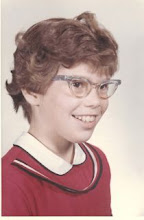Please join me in welcoming today's guest blogger, Suzanne Gibbs. Suzanne is a fourth grade teacher at Warner Elementary in Spring Arbor, Michigan. She has a wonderful, supportive husband who is also a teacher, two beautiful daughters, and the sweetest dog ever. She loves music, theater, sewing, and reading. You can find her on Twitter and on her blog.
After teaching with a basal series for several years both in first and fifth grades, I came upon The Book Whisperer, by Donalyn Miller. To declare that it completely changed my approach to teaching reading (and writing) as well as my personal reading life would not be an overstatement. If you’re a teacher, you know a typical basal series has all kids reading the same story and is accompanied by specific vocabulary, spelling, and grammar assignments. Some of the stories are okay, but most of the time about half of the kids in class have no interest in the story whatsoever. For them, it’s just another story to grind their way through and more worksheets to complete. I made the decision that since there is so much research to back up choice reading and the positive effects it has on kids’ learning, it was a strategy worth diving into. I had spoken with several other teachers who had embraced this philosophy and they all raved about its success.
Realizing that my classroom was shamefully thin on great books, I wrote grants, shopped garage sales and Goodwill, asked for donations, and (thankfully) was given a generous cash donation from two local businessmen. I read and read and read some more. My former reading life consisted of practically all non-fiction, and I found these “new” books to be an absolute joy! By the time school began, my shelves were stocked with great books and I was ready to introduce my kiddos to wonderful characters created by incredible authors.
To be completely honest, the beginning of the school year felt more than a little chaotic. We had a “book frenzy” on the very first day, with students giddily making their initial book choices. It was exhilarating. It was also about the scariest thing I’ve done in my teaching career! Noise filled the room. I felt out of control. It was really a challenge to be okay with that.
Although it took a lot of work, we - my kids and I - read our way through books we adored and gave ourselves permission to abandon books we did not like. With these books came deeper understanding about characters and settings and themes and problems and genres. And each other. The kids discussed books with each other, declaring, with conviction and passion, why theirs was so wonderful. They were proud of themselves when another classmate chose to read something they had recommended. Authors became celebrities and important people to know about. Some of the most exciting days in our classroom were those that included a Skype or personal visit with one of the beloved writers.
The journey took patience. It took risk and some failures. At times it was frustrating. It was definitely hard. But by the time our year ended, twenty eight very important people had been given permission to be in charge of their own reading lives and, as a result, had fallen in love with reading. They had been able to share that love on our school’s morning announcements, with their friends and families, on their own blogs, on Skype sessions, in letters to me, on Prezis, and even by making their own book trailers.
If you have made the leap to letting your students have choice in their reading, you are to be applauded. The only thing I regret about this decision is that I didn’t make it years ago. I am so thankful for Donalyn’s insightful and practical book, and for the amazing people in our world who open our minds to endless possibilities through the stories they tell.
Thank you Suzanne for sharing your journey with us; what a great success! Your experience (and that of other teachers who have embraced student reading choice) reminds me of the wise words of uber librarian, Nancy Pearl, who has said: "There are 50 books everyone should read but they aren't the same 50 books for everyone."



No comments:
Post a Comment